India Philanthropy Law
REPORT LAST UPDATED: APRIL 2023
Indian culture places great emphasis on Daana (giving). The ancient philosophy of Nishkama Karma – “do good without the expectation of getting a reward” – continues to profoundly influence many peoples’ lives. In keeping with this philosophy, Daana is widely practiced and can take various forms, including Vastra Daana (giving clothing), Anna Daana (giving grain), or Shram Daana (giving voluntary service). Every individual or household is expected to help the needy and the suffering in some way. At the national level, India’s legal framework is considered supportive of philanthropic giving.
ICNL’s India Philanthropy Law Report unpacks this environment and the present-day legal framework for philanthropy law. Additionally, our India FAQs provide more context on civil society and philanthropy in the country.
Explore our collection of visual materials below:
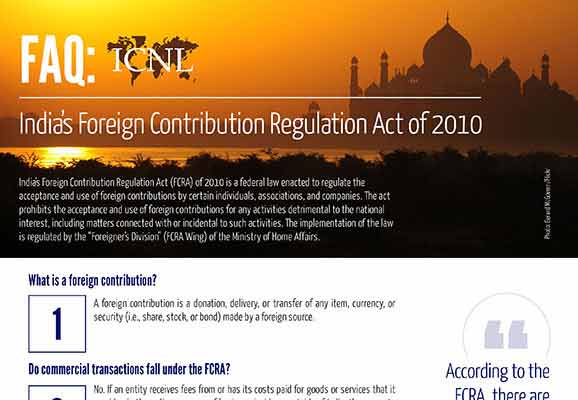
FAQ 1: Foreign Contribution Regulation Act
The Foreign Contribution Regulation Act (FCRA) regulates the acceptance and use of foreign contributions by certain entities.
DOWNLOAD THE FAQ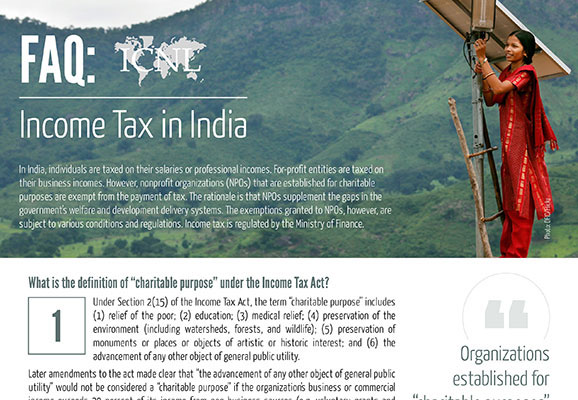
FAQ 2: Income Tax
Nonprofits that are established for charitable purposes are exempt from tax. Read our FAQ to learn more about the conditions and regulations governing these exemptions.
DOWNLOAD THE FAQ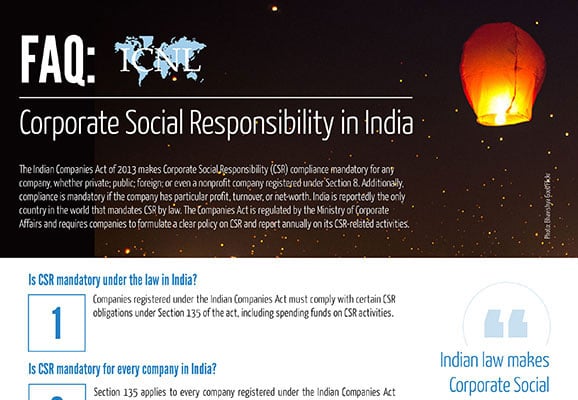
FAQ 3: Corporate Social Responsibility
Corporate Social Responsibility (CSR) is mandatory under the Indian Companies Act of 2013. Explore how CSR affects nonprofits in our FAQ.
DOWNLOAD THE FAQ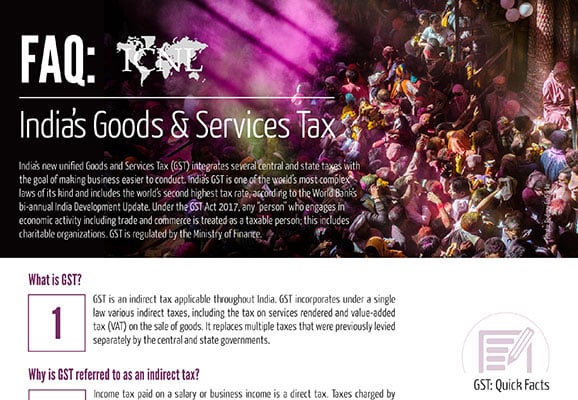
FAQ 4: Goods & Services Tax
India’s GST is one of the world’s most complex laws of its kind – and it applies to charitable organizations. Learn about it here.
DOWNLOAD THE FAQ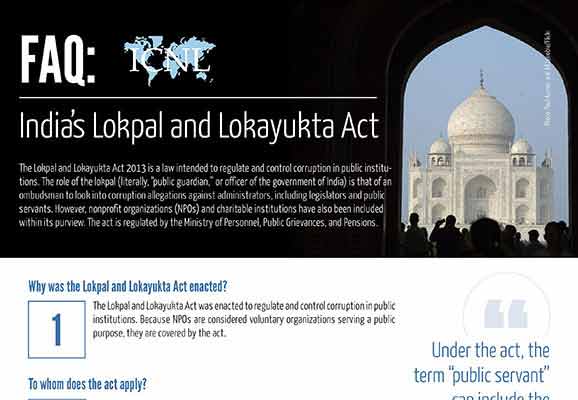
FAQ 5: Lokpal & Lokayukta Act
The Lokpal and Lokayukta Act 2013 is intended to regulate and control corruption in public institutions. Read our FAQ to see how the Act also applies to nonprofits.
DOWNLOAD THE FAQSign up for our newsletters
Sign up